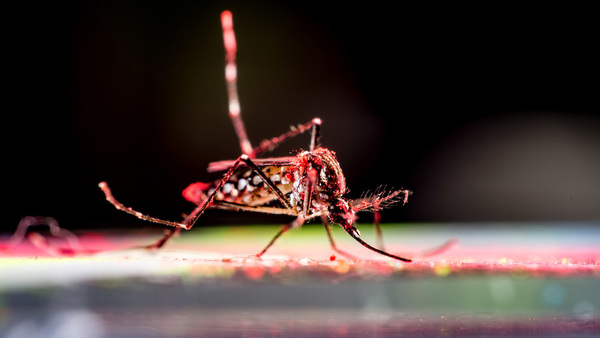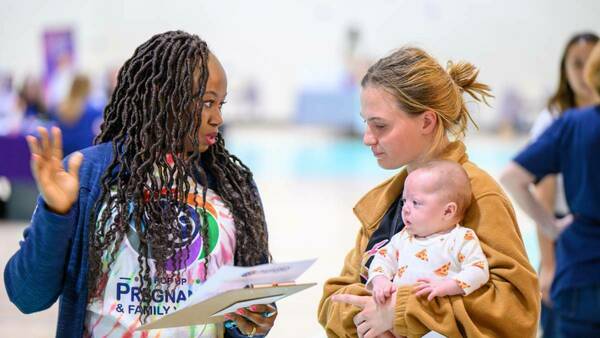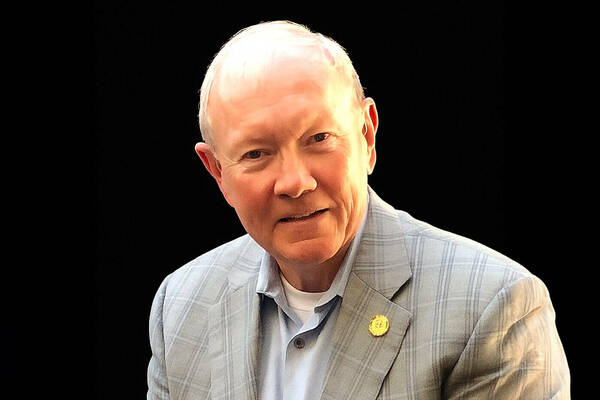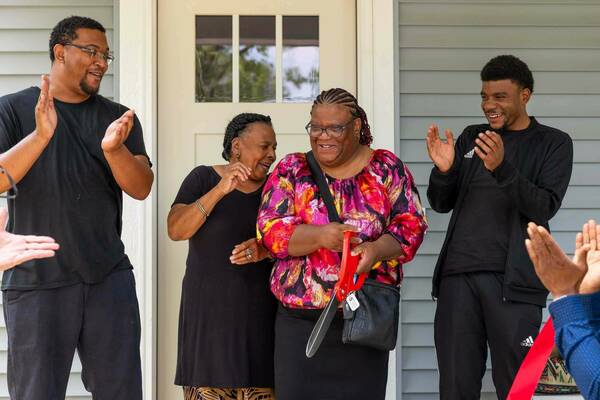Kroc Institute releases third report on Colombian Peace Agreement implementation of ethnic approach
Colombia is at the halfway point with the implementation of its 2016 peace accord, and data indicate there are serious challenges to achieving goals established to guarantee the rights of ethnic communities in the peace process.
A new report from the Peace Accords Matrix (PAM), part of the Kroc Institute for International Peace Studies in the Keough School of Global Affairs at the University of Notre Dame, outlines the limitations and weaknesses, as well as progress and successes, of implementing ethnic commitments within the Colombian context. “A Call to Action: Third Special Report on the Implementation Status of the Colombian Final Peace Accord’s Ethnic Approach” was officially released at events held Sept. 10 in Cali, Colombia, and Sept. 17 in Washington, D.C. At both gatherings, speakers presented an overview of the report’s findings and facilitated discussions on lessons learned and best practices for fostering inclusive peacebuilding.

“Lasting peace in Colombia requires understanding and addressing the different and disproportionate impacts of the armed conflict on ethnic groups,” said Ángela María Ramírez Rincón, executive director of PAM’s Barometer Initiative in Colombia, at the Sept. 17 launch event.
“We’ve found a significant gap between general implementation of the accord and implementation of the ethnic chapter and ethnic approach. Obviously, this is of great concern — but as the report highlights, there are action steps offered to close this gap. This gives us hope,” she said.
The report offers both quantitative and qualitative analysis, with recommendations to guide the second half of the implementation period for the ethnic approach and to achieve higher rates of implementation. The value of its findings and recommendations enabled PAM staff to present to the Department of State and offer briefings to congressional staffers during their time in Washington, D.C., last month.
Obstacles include a lack of effective mainstreaming in planning and programmatic efforts, slow implementation of security guarantees for ethnic communities and a failure to apply prior consultation processes for ethnic groups. A legacy of state neglect, combined with suffering caused by prolonged conflict and violence against these communities, calls for sustained efforts to rebuild trust and address grievances.
“Implementation of the Final Accord’s ethnic commitments provides a historic opportunity to recognize and guarantee the rights of ethnic communities in Colombia who have experienced disproportionate and identity-specific impacts of the armed conflict,” said Josefina Echavarría Álvarez, PAM’s director.
She noted that the United States and Mexico have declared their commitment and support since fall 2022.
“Both countries have pledged technical and financial resources to bring the promises of ethnic equality and authentic development to the Indigenous, Afro and Roma peoples in Colombia,” Echavarría Álvarez said. “We hope this support translates into considerable gains, such as better coordination and the incorporation of ethnic lenses in all plans, programs, projects and forums created by the accord.”
PAM researchers found the need to strengthen protection of ethnic communities, especially among women leaders, and to implement landmine removal in the territories. The report emphasizes the importance of justice and reparations for these communities through participation in the Special Jurisdiction for Peace and culturally sensitive searches for missing persons. In addition, it encourages international and governmental support to provide financial and technical resources for restorative justice projects, and to ensure ethnic communities actively contribute to peacebuilding efforts.
“Though implementation of the Final Accord’s ethnic stipulations are not where they should be at this time, the Kroc Institute has outlined several actions that could, in the short and medium term, expedite and enhance implementation,” Ramírez Rincón said. “Advancing these commitments would empower ethnic communities to realize their full potential and contribute to a more equitable and just peace, allowing society as a whole to prosper.”
Alongside the full report, the Kroc Institute has also produced a policy brief highlighting key points of the report. The institute has released eight prior reports on the status of overall implementation, as well as four reports on implementation of gender provisions, two reports on implementation of ethnic provisions, a special report on the implementation of the Final Agreement from the perspective of victims’ rights, and a special report on the environmental challenges. All of PAM’s reports are available here.
Originally published by at kroc.nd.edu on Oct. 24.
Contact: Tracy DeStazio, associate director of media relations, 574-631-9958 or tdestazi@nd.edu
Latest ND NewsWire
- Researchers deconstruct chikungunya outbreaks to improve prediction and vaccine developmentThe symptoms come on quickly — acute fever, followed by debilitating joint pain that can last for months. Though rarely fatal, the chikungunya virus, a mosquito-borne illness, can be particularly severe for high-risk individuals, including newborns and older adults. While the virus is common…
- Eck Institute investigator to strengthen postpartum care for Indiana mothersYenupini Joyce Adams, associate professor of the practice and maternal health lead for the Eck Institute for Global Health at the University of Notre Dame, is partnering with Beacon Health System to pilot a new, first-of-its-kind postpartum care model in the South Bend-Elkhart community.
- Gen. Martin Dempsey to speak at Notre Dame Forum event on ‘Hope, Global Stability and the Role of the United States’Gen. Martin Dempsey, the retired 18th chairman of the Joint Chiefs of Staff, will join University President Rev. Robert A. Dowd, C.S.C., for a fireside chat at 4 p.m. Friday (Oct. 10), as part of the 2025-26 Notre Dame Forum. The discussion, titled “Hope, Global Stability and the Role of the United States,” is part of the exploration of this year’s Notre Dame Forum theme, “Cultivating Hope.” It will take place in Rooms 215/216 of McKenna Hall and will also be livestreamed. The event is free and open to the public.
- University of Notre Dame joins the Global Coalition of Ukrainian StudiesThe University of Notre Dame has joined the Global Coalition of Ukrainian Studies after signing a memorandum of cooperation, formalized Sept. 24, at the Ukrainian Institute of America in New York City. Notre Dame joined four other American institutions that were also publicly welcomed to the coalition at this event: Arizona State University, Columbia University, Manor College and the Shevchenko Scientific Society.
- One year later, Inauguration Build a ‘dream come true’ for Habitat familiesOne year later, work on Inauguration Build 2024 is complete, offering shelter and so much more to five local families.
- Alumni Association and YoungND honor 2025 Domer DozenThe Notre Dame Alumni Association announced its 2025 Domer Dozen cohort, honoring 12 graduates ages 32 and younger for excellence in their contributions in learning, service, faith and work — the core pillars of the association’s mission.













